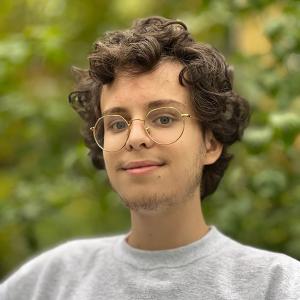Applying to summer music festivals is a standard route to embark on in orchestral circles. The opportunity to study under faculty from around the world coupled with meeting other like-minded individuals makes summer festivals extremely special musical experiences. Granted, some festivals are very prestigious, so the road to getting there can be quite difficult.
From what I’ve gathered from both my peers at Oberlin and from other universities, many musicians start thinking about which festivals they’ll apply to as early as August of the previous year. For the most prestigious festivals, this makes good sense. Though the audition repertoire may not be posted until October or November, going into the application season with a goal in mind adds proverbial fuel to the fire.
Like with many facets of the arts, COVID put music festivals into a precarious position. Especially in the summer of 2021, festivals were hit or miss–large, orchestral-based festivals had to cancel entirely, while chamber festivals and instrument-specific intensives were held on a case-by-case basis. With this in mind, I had no intention of applying to festivals last year. Everything seemed so bleak. Plus, caught up in the heat of my first year at Oberlin, I was not feeling confident in my playing. So, by the end of March, I just lay back and watched as the application deadlines rolled right past me.
Just when I thought I was done mulling over what my summer plans would look like, Oberlin announced that, also due to COVID, the Fall 2021 semester was not going to begin until early October. This meant that summer, a time that would normally be around 2–2.5 months, nearly doubled to about 4.5–5 months. That’s a lot of time to be twiddling my thumbs at home…
And, thus, a frenzy of last-minute applications to festivals began. By this point, it was early April. Many of the deadlines for the festivals in the U.S. were long gone. Since I was only acquainted with festivals nationally, I had to do a bit of hurried research to see what my options were. Luckily enough, I found three festivals that were still open: a chamber festival in Wisconsin, a chamber festival in France, and a large orchestra festival in Italy. For the European festivals, I thought my chances were slim to none, but I was pretty desperate. Earlier in the semester, I entered a few competitions so, thankfully, I had some recordings to throw together and submit.
Honestly, I did not feel confident in these applications. My recordings were not something I was particularly proud of and this was around the time I was struggling more with performance anxiety. But, despite the second-guessing, I reminded myself that I had nothing to lose in applying. And, in the following weeks, the results of the festivals came in this order:
1) The festival in France was canceled due to COVID (meaning I didn’t know whether I got in or not).
2) I was wait-listed at the festival in Wisconsin.
3) I was accepted to the festival in Italy.
I wrote off the European festivals, so this felt pretty far out of left field.
As May rolled around, I got an email from Professor Sergio Pallottelli–the flute professor from the festival in France. In this email, he spoke highly of my application and offered me a spot at another festival he leads in Italy: Flauti al Castello (a flute-intensive program). For someone who was not planning on even applying to festivals, this was doubly exciting and overwhelming. I responded indicating my inability to participate due to the schedule conflict with the orchestra festival whose invitation I had just accepted, but was extremely grateful for his offer.
Fast-forward to mid May: the orchestra festival in Italy was cancelled. At the time, this was heart-breaking news. There was a grieving period of a couple hours… and then I hobbled on over to Sergio's email and asked if the spot he offered was still open. And by some crazy stroke of luck… it was.
Attending Flauti al Castello was an incredible experience. It is a 10-day program designed for collegiate and pre-professional flutists. Instruction takes place primarily through masterclasses with Sergio and guest artist Matthieu Gauci-Ancelin. Both were incredibly supportive and helpful to all of the students; it was an experience that I will always be grateful I was a part of. As everyone grew closer, learning more about flute and each other, I knew I was incredibly lucky–it was just three months earlier when I scrambled together my festival applications. For an experience that I will forever cherish, those are some odds.
All of this to say, no matter where you may think you're at in your musical journey, don't be afraid to put yourself out there. It is scary and can feel aimless, but you never know what could happen down the line. Even if you have to remind yourself before submitting every application, just remember that what you are doing is brave and can lead to an opportunity–and perhaps it will not even be the one you intended.













